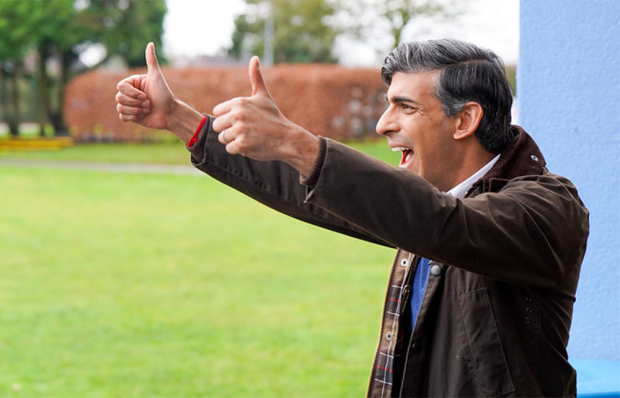Libyan solution
Sir: Boris Johnson correctly reports glimmers of hope in Libya, but to say its problems can be solved by political will risks falling into the same trap of wishful thinking that has hobbled the international community’s intervention there (‘Libya’s best hope’, 13 May). To fix Libya, its political process must be restructured to incentivise cooperation between its various factions.
One thing nearly all Libyans can agree on is that the country’s oil should flow freely, since oil revenues pay for everybody’s fuel, medicine and salaries. In recent years, oil production has been repeatedly blockaded by criminal militias and politicians alike; sometimes by the same people engaged in people-trafficking. If we want to drive the sides to reach a political settlement, Libya’s oil must be taken off the table as an object of conflict.
How? A modified Libyan Political Agreement should protect the National Oil Corporation (NOC) from political capture, while the Petroleum Facilities Guard must be restored to the control of the NOC — possibly the only functional institution left in the country. These actions could be accomplished with two strokes of a pen. This is a set of policies Britain can help to craft.
James Cecil
London W6
Gospel of Matthew Parris
Sir: Matthew Parris is ambitious indeed to claim that he can ‘do better than Matthew’s gospel’ (13 May), but he is too timid in his detaching of morality from religion. Yes, morality precedes religion; yes, religion has used and misused moral codes for its benefit; and yes, moral systems are most likely societal and Darwinian. Moral systems come and go fleetingly, though — they are necessarily of this world. By contrast, religion proposes eternal truths. Christians believe that in the person of Jesus, God’s eternal nature is revealed as being utterly beyond and yet fully involved in this world. Not as divine CCTV spying on us; rather, as willing participant in the suffering we cause to each other, blundering about in our fallen nature. St Matthew may just have the edge over Parson Parris for now.
The Revd Dr Martin Thomas
Catford, London
Japanese pilgrimage
Sir: Gary Dexter rightly draws attention to the close linguistic relationship between Japan and the United Kingdom, but misses one set of authors on whom the Japanese dote (‘Found in translation’, 13 May). Here in Haworth, we get so many visitors from Japan who come for the Brontë connections that it has been judged necessary to put many of the signposts in both English and Japanese. Coach-loads of Japanese visitors throng my local to enjoy the language and the food. Occasionally I’ve even been bought a pint by some of the more expert visitors, who often want a translation of the Yorkshire dialect, particularly from Wuthering Heights, and to hear it spoken. The whole business is an honour for us and it seems to be a delight for them.
David Pearson
Haworth, West Yorkshire
Altered flavours
Sir: With reference to James Delingpole’s article on Lucozade (6 May), manufacturers are not alone in causing a change in the flavour of our foods. A few years ago, my wife and I complained about the impaired flavour of Anchor butter. I contacted the manufacturers in New Zealand, who confirmed that they no longer sold their butter in Europe. They had such a large tariff slapped on them to protect French farmers that it was no longer economical for them to sell into the EU. They sold the brand name to another company, hence the now much-inferior product — in our view — being marketed under the same name.
Anthony Brookes
Charlwood, Surrey
Hidden Joneses
Sir: After seeing the magic David Jones exhibition recently at Pallant House, Chichester, it pains me to learn from Charles Moore (Notes, 13 May) that there are 13 David Jones works hidden away in the Tate. I would go and see them every week.
Antonia Fraser
London W8
Upside-down NHS
Sir: Mary Wakefield’s sensitive interview with Henry Marsh (‘At the cutting edge’, 6 May) brought back a comment my brother-in-law (a consultant physician) made many years ago. Having been in business before becoming a late entrant into medicine, he was clear about the fundamental problem with the NHS. ‘It is upside down.’ In business, the most able and experienced people make the key decisions, and the executive managers carry them out. In the NHS, the reverse is true. Henry Marsh obviously came to the same conclusion years ago. Until the political classes learn the lesson, it seems the NHS is doomed to stagger from one crisis to the next.
Ashley Mote
Binsted, Hampshire
Stick with your team
Sir: Damian Reilly doesn’t need to defend switching his football allegiance from one mega-club, Manchester United, to another, Arsenal (‘Stand up for Arsène’, 13 May). But in his relentless pursuit of value, his relationship with football resembles that which most of us have with our internet provider. Football is not something you shop around for on a comparison website.
What Damian appears to be missing is that most football supporters endure, not enjoy, following their (largely mediocre) teams through thin and thin. Holding a season ticket at Aberdeen in the early 2000s, I hated pretty much every moment as the Dons succumbed to an unending series of indistinguishable defeats, mostly played out in gale-force conditions blown in from the North Sea. We wouldn’t have missed it for anything.
Sanjoy Sen
Aberdeen
Got something to add? Join the discussion and comment below.
Get 10 issues for just $10
Subscribe to The Spectator Australia today for the next 10 magazine issues, plus full online access, for just $10.
You might disagree with half of it, but you’ll enjoy reading all of it. Try your first month for free, then just $2 a week for the remainder of your first year.













Comments
Don't miss out
Join the conversation with other Spectator Australia readers. Subscribe to leave a comment.
SUBSCRIBEAlready a subscriber? Log in